Apple “pays to make Galaxy S23 seem slower”, say Android users: True or false? Key CEO reacts
This article may contain personal views and opinion from the author.
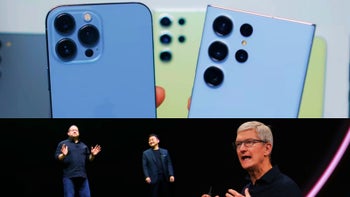
A new “Apple vs Samsung/Andorid” scandal is brewing up on tech social media, and some people are speaking out...
Geekbench 6... Ah, no, it should be called “Applebench 6”. The following are the results after the S23+ update, and the comparison before and after the iPhone 14 Pro update. Android was a fiasco. The apple bloomed with laughter.
Twitter
I think Geekbench favors Apple. Everytime Apple is about to lose, a new Geekbench version comes…
This is real sus. Maybe it's time that Geekbench shouldn't be used for comparisons anymore.
Twitter
I will never trust these benchmarking apps…
Twitter
Geekbench, Antutu, GFX, 3D Mark… If you don't know what those words mean, you might as well click out right now. Unless, of course, you’re curious to find out how one of those companies has suddenly made the new Galaxy S23 Ultra seem far slower than not just the iPhone 14 Pro, but also than the 2021 iPhone 13.
As per the company’s website, the new Geekbench (the most popular phone benchmark) measures your processor's power for “everything from checking your email to taking a picture to playing music, or all of it at once”. It also tests your phone’s gaming abilities, image processing, and video editing power. In other words, Geekbench “can tell you how powerful a phone is”, and respectively when one phone is faster than another, and by how much.
Now that the same company (Geekbench) has launched the next version of the 2019 Geekbench 5, called (you guessed it) Geekbench 6, the tests have changed. And what the new tests say is that the iPhone 14 Pro is much faster than any other Android phone on the market, including the Galaxy S23 Ultra and its new “For Galaxy” Snapdragon 8 Gen 2 SoC. Period. No questions asked.
New Geekbench 6 benchmark test proves more difficult for Android phones; says they are now “far slower than iPhone”; Geekbench CEO speaks up
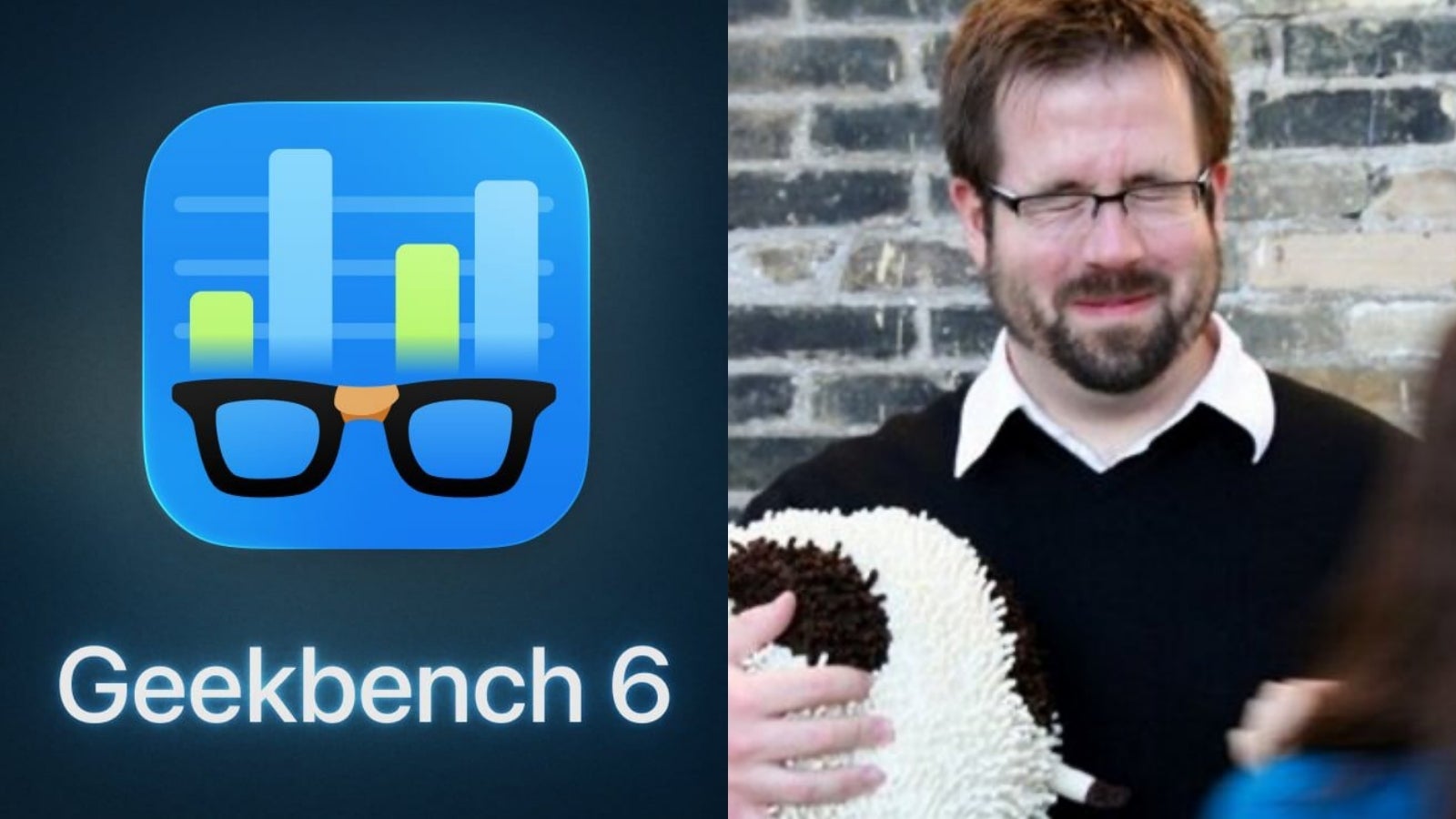
A16 Bionic extends its lead over competing Android chips thanks to Geekbench 6, but not really. The test simply is supposed to be more accurate now.
What is different in Geekbench 6 compared to Geekbench 5 that’s potentially leading to the iPhone 14 Pro increasing its raw performance lead over the Galaxy S23 Ultra?
Apart from Machine Learning and AI, Geekbench 6 is now supposed to more accurately and extensively test:
- Larger datasets
- AI object detection (when your iPhone/Android recognizes your face in photos, or knows to tell food from a dog)
- Applying filters to your photos (we’ve all done it)
- Background blur (like the one you can add on your video calls in apps like Zoom, Slack, iMessage)
- Photos with a higher megapixel count (new phones feature 48, 50, 64, 108, and even 200MP cameras, which weren’t the norm in 2019 when Geekbench 5 launched)
- Larger maps, larger PDFs files, new HTML workloads, navigation, ray tracing (the gamers know), etc.
More importantly, though, Geekbench 6 seems to focus on taking better advantage of the GPUs across different platforms (Android, iPhone), while the multi-core CPU score should better reflect how newer chips make use of both high-speed and efficiency cores/horsepower to complete different tasks…
“In Geekbench 6, the biggest change is probably the way multi-core scores are calculated, measuring "how cores cooperate to complete a shared task" rather than assigning different tasks to each core. This is meant to better reflect how actual multi-core workloads operate, especially for hybrid CPU architectures that mix big, fast cores and small, power-efficient ones, an ever-growing category of chips that includes most modern ARM processors and Intel's 12th- and 13th-generation CPUs.”
Arstechnica, interview with Primate Labs founder and Geekbench creator John Poole
For the full interview with John Poole, head to Arstechnica.com, where Andrew Cunningham seems to have done a great job at laying out the changes, goals, and challenges when it comes to the new performance-testing app that’s Geekbench 6. Four pages - make a coffee.
Exclusive Snapdragon 8 Gen 2 chip for Galaxy S23 Ultra now "30% slower" than the iPhone 14 Pro's A16 Bionic; Samsung users disagree
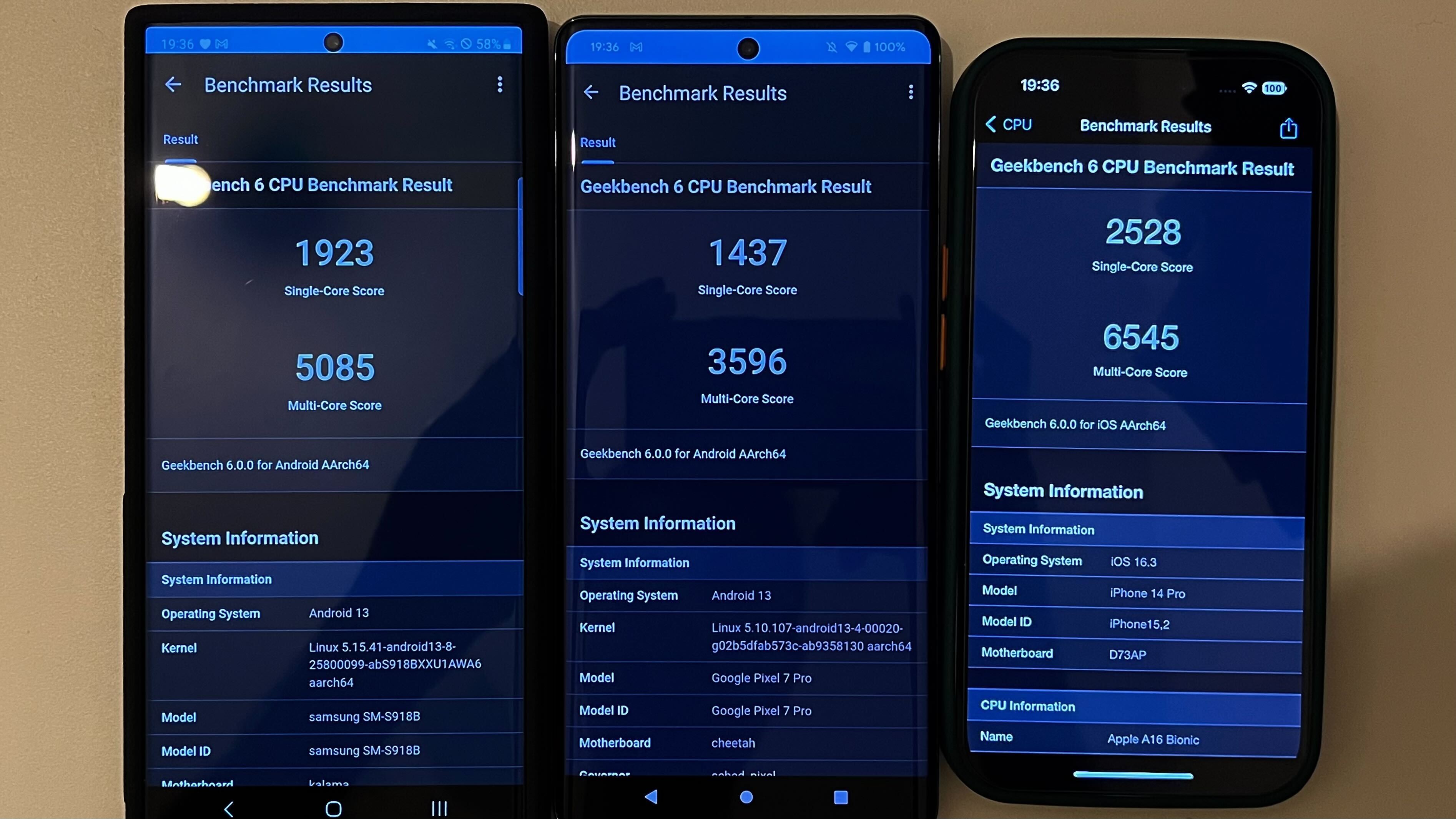
Galaxy S23 Ultra (left), Pixel 7 Pro (middle), iPhone 14 Pro (right). New, more demanding Geekbench 6 test puts iPhone 14 Pro far ahead Galaxy S23 Ultra, Pixel 7 Pro.
But now to the big question, which is: How come the new benchmark standard made by the most popular phone performance benchmarking app, happens to make the iPhone 14 Pro seem nearly 30% faster than the brand new Galaxy S23 Ultra, which comes with an exclusive Snapdragon 8 Gen 2.
Comparing Geekbench 5 (the old test) to Geekbench 6 (the new test), shows the iPhone 14 Pro’s performance lead has jumped from roughly 12% to more than double, or 28%.
- Galaxy S23 Ultra - 1,600 (single-core), 5,000 (multi-core)
- iPhone 14 Pro - 1,900 (single-core), 5,500 (multi-core)
Geekbench 6 scores (rounded up)
- Galaxy S23 Ultra - 1,900 (single-core), 5,100 (multi-core), 6% higher than Geekbench 5
- iPhone 14 Pro - 2,500 (single-core score), 6,500 (multi-core score), 21% higher than Geekbench 5
Surely, that means you should throw your Galaxy S23 Ultra away; buy an iPhone 14 Pro, and that Apple Cloth to wipe it out. Or continue reading...
If we accept that Apple’s existing/old 12% lead was legitimate (which no one seemed to question), the added 15% lead surely seems just as likely to be real? That speaks to the fact that Samsung’s phone was already behind when it comes to the old testing standard.
Ironically, this was the highest Geekbench 5 score on a Galaxy ever, which explains why Samsung fans were very happy with it, as it went toe-to-toe with the vanilla iPhone 14 - a monumental achievement for Samsung, Android, and Qualcomm.
Is my Galaxy S23 Ultra really 30% slower than my iPhone 14 Pro? Real-world use shows the answer is somewhat... complicated
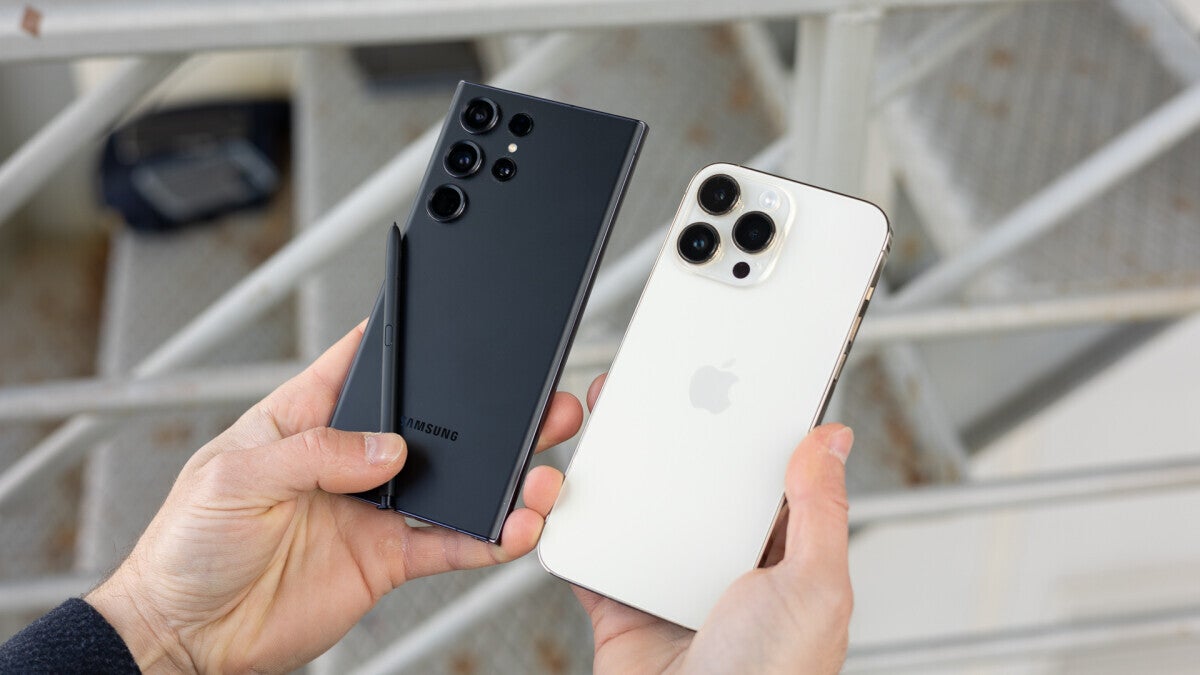
But is it slower... for real?
But as someone who’s been using both the Galaxy S23 Ultra and iPhone 14 Pro for some time now (also, the Pixel 7 Pro), would I say the Geekbench 6 results translate into real-world use, or are they… “rigged”? Here’s what I can tell you…
- Launching apps, the Galaxy S23 Ultra and iPhone 14 Pro perform quite similarly; if anything, the S23 Ultra is often faster to open day-to-day apps like Instagram, Twitter, YouTube, etc.
- RAM management comes with a higher ceiling on the Galaxy, which not only has twice the amount of RAM (my unit comes with 12GB), but has faster LPDDR5x RAM, which can also swap storage for more RAM; all of this results in more apps staying open in the background on the S23 Ultra - mostly noticeable when you push the phones very hard (opening multiple games amongst other apps)
When using certain apps is where the iPhone 14 Pro sometimes takes the lead over the Galaxy S23 Ultra...
- Although the Galaxy S23 Ultra might open Instagram a second faster, the iPhone 14 Pro is noticeably quicker to take a photo with the Instagram camera and process it; the Galaxy doesn’t seem to apply any noise-reduction, and video quality within Instagram is better on iPhone, with better exposure, colors, etc.
- In a similar fashion, taking a high-res photo on iPhone 14 Pro (48MP) is pretty much an instant task; although both phones take 1-2 seconds to snap high-res images, the iPhone processes those pretty much instantly, in the background; the Galaxy S23 Ultra can take 5-10 seconds to process a 50MP photo and doesn’t seem to be able to do it in the background
If you took a 50MP photo with the Galaxy S23 Ultra and immediately exited the Camera app, the picture wouldn’t be ready to use until you launch the Gallery app again. Then, you’d have to wait for the phone to finish processing the image.
There's a vast difference in how Android/Samsung and iPhone do things, and gaming on Galaxy S23 Ultra and iPhone 15 Pro demonstrates that very well
As you can tell, Android and iPhone do things differently and trade blows. But perhaps the best example I’ve found to illustrate how the iPhone 14 Pro and Samsung Galaxy S23 Ultra like to do things differently is in games…
- The Galaxy S23 Ultra will download a game basically immediately; the iPhone 14 Pro takes a minute… literally (I used NBA 2K for my test)
- But once you open the game, you’d see that the massive difference in download speed comes from the fact that the Galaxy hasn’t downloaded any of the resources/additional data to run the game; iPhone downloads the whole thing, which means it can launch the game immediately - the Galaxy (you guessed it) takes a minute… literally
- The Galaxy S23 Ultra let’s you choose between Low, Medium, and High graphics but runs at 60Hz; the iPhone makes the graphics decision for you but runs at full 120hz, which is the highest screen refresh rate on both phones
- When playing games (not particularly NBA 2K), the iPhone maintains higher FPS (runs smoother for a longer period of time) despite using less power; then again, the Galaxy S23 Ultra stays cooler, show Golden Reviewer’s Genshin Impact tests
It’s important to remember: While Geekbench is a cross-platform testing software, it doesn’t change the fact that the Galaxy S23 and iPhone 14 run different operating systems, which take a varying approach to the same type of tasks.
Benchmarks don’t lie but they also don’t show the whole picture; Tim Cook most likely isn’t paying to make your Android/Galaxy seem slower
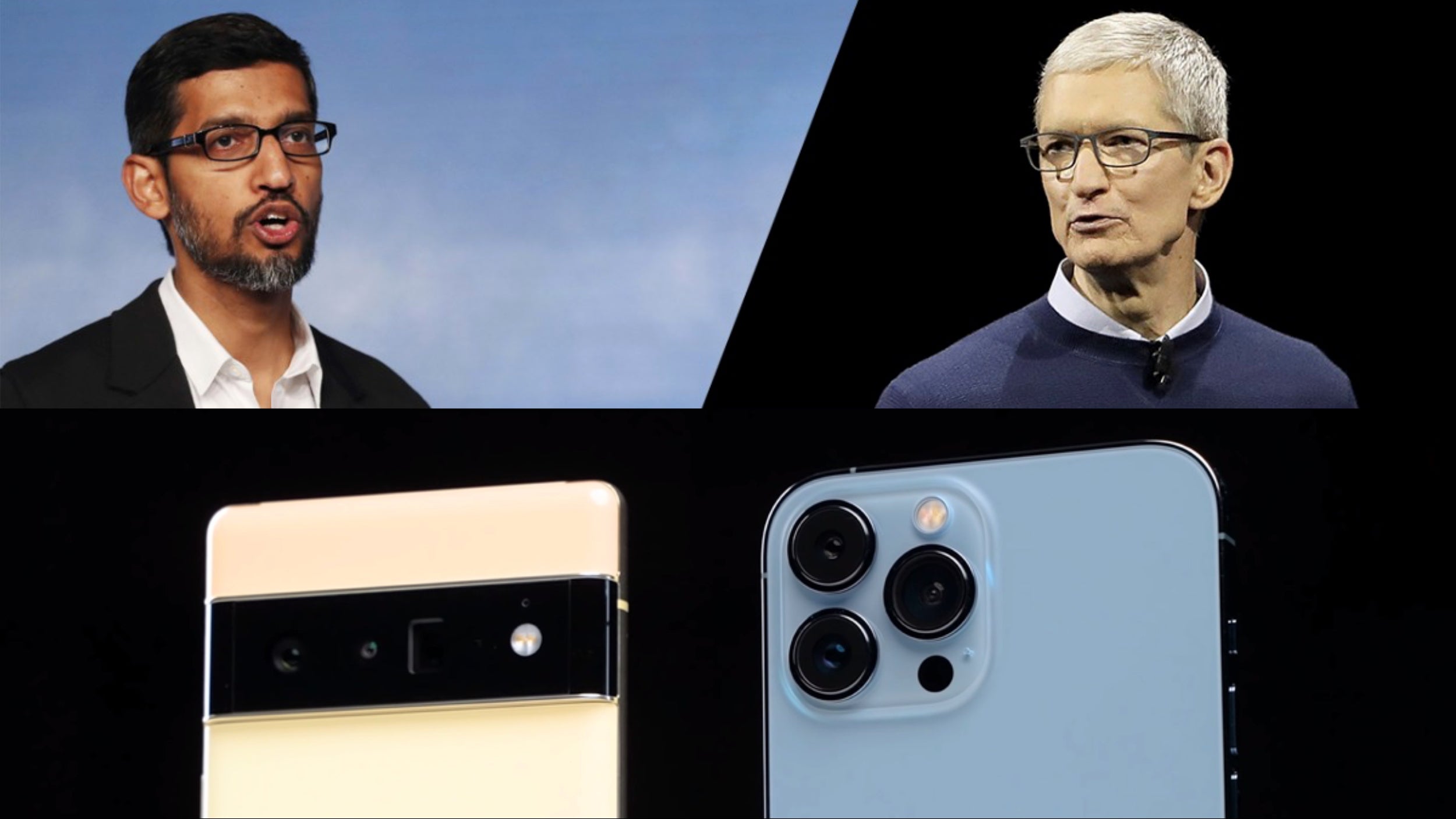
Whatever you do, do not buy a phone because it scores higher on Geekbench. That's why we review phones.
In the end, take Geekbench for what it’s worth. A three-minute simulated benchmark will never be able to show off the full capabilities of a device, since it simply doesn’t give you the full picture of the phone’s sustained performance (over time). Furthermore, we use our phones differently.
Then, some record in 1080p, some in 4K (most have no idea what that is); some take photos exclusively with the phone’s camera app, and some do it only via Instagram/Snapchat - again, a task that’s far more demanding and far less optimized for speed and quality. You get the gist of it.
What’s relatively safe to assume is that Geekbench can't directly manipulate benchmark scores. For one, GB is a cross-compatible platform, running not just on iPhone and Android, but also on Windows and Linux, amongst other systems.
The numbers speak for themselves. Take Intel’s supercharged i9-13900KS processor, which scores 23,600 in multi-core score on the newly-launched Geekbench 6 versus close to 15,000 for Apple’s M2 Max SoC. Surely, Tim Cook hasn’t skipped an instalment, right?
All that being said, Geeknech was originally launched on Mac, having come to iPhone in 2010, to then become compatible with Android two years later, in 2012. To make matters spicier, It appears that founder John Poole has a personal preference for some of Apple’s products like the Apple Watch. Yes, I went through his old Tweets, but even if I was trying to get him “canceled”, it turns out his work computer is a $3,000 powerhouse made by… Lenovo. That was (not) close.
Benchmarks can’t decide which phone is better/worse, as they don’t test all aspects of a phone. You don’t buy a car by looking at the engine alone. That’s why our reviews are for. Is Geekbench a good measure of raw power? Sure. Am I switching to iPhone 14 Pro from my iPhone 13 mini? Absolutely not. Geekbench doesn’t know how much lighter and more compact the iPhone 13 mini is. Add that to your test, Mr. Poole?










Things that are NOT allowed: